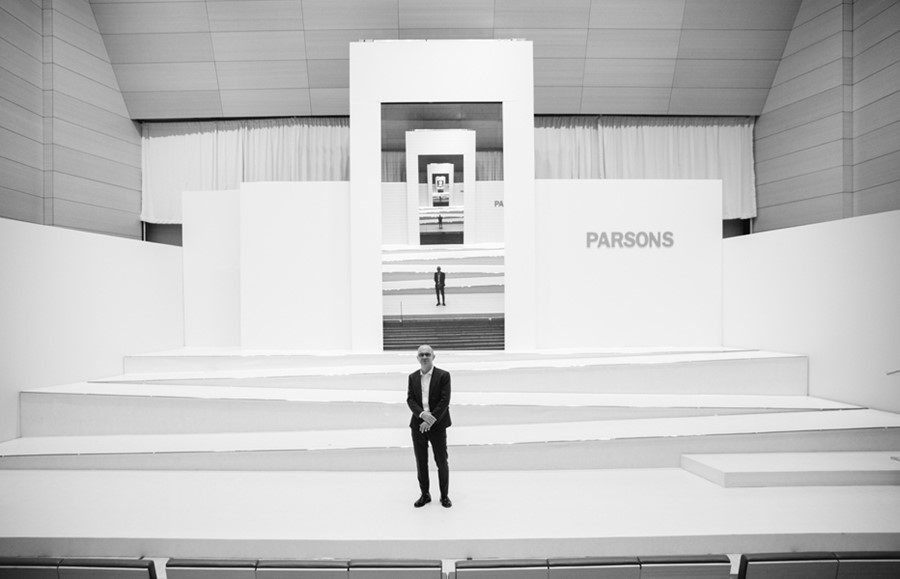The voice of authority at Parsons, Simon Collins on the question of fashion versus elegance and what he means when he talks about "teaching" fashion
Simon Collins serves as Dean of Fashion at Parsons The New School for Design. Prior to his current position, he has worked as Creative Director for Nike’s Asia Pacific Division, where he collaborated with the likes of Comme des Garçons and Issey Miyake. As a freelance creative director, he worked for such varied clients as Zegna and Marks & Spencer. Since his appointment at Parsons in 2008, he has established collaborations with the most prominent corporate groups in fashion, as well as creating new platforms for emerging designers. A world-renowned consultant and speaker on fashion issues, he also serves on the board of Tsinghua University in Beijing.
How would you connect fashion to elegance?
Fashion can be elegant, but it does not necessarily need to be. Of course, one can say that elegance is in the eye of the beholder, that one person can see elegance where somebody else doesn’t, but there is some fairly clear understanding of what elegance is, and typically it is historic, but I don’t really see fashion as having anything to do with it. To me, it’s like asking: what’s the connection between fashion and red? Sometimes red can be fashionable, there you go. Does that mean that red is always fashionable? Certainly not.
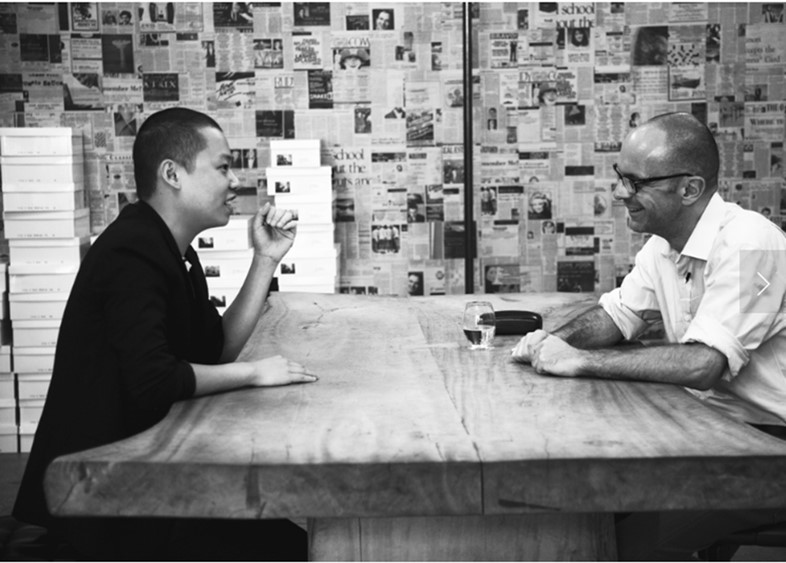
What is the role of history and art history in your conception of fashion?
It’s a very charged question. Some would have it: none. I’m not sure I agree with that because history informs what we do whether we realise it or not. For instance at Parsons art and design history are part of the liberal arts curriculum and are required for every fashion student. That’s a good thing. And then we meet people like Thom Browne who didn’t study fashion. Maybe he reads about it, maybe he doesn’t. Does it matter? I think you can be incredibly prolific in fashion and not consciously worry about history.
"What’s the connection between fashion and red? Sometimes red can be fashionable. Does that mean that red is always fashionable? Certainly not" — Simon Collins
Would you describe fashion as a language and a discourse, as Barthes did it?
To me this relates to the highly debated notion of whether fashion can be academic or not. There are quite brilliant people who write about it, but does the fact that they are writing about it make it into an academic subject? I don’t know. You’ve got people like Harold Koda or Andrew Bolton, who write so wonderfully about fashion, and I like nothing more than reading what they write. But I also love the work of a 20 year-old blogger. And that’s not academic, that’s more of a visceral reaction to what’s going on. To me that can be just as fascinating.
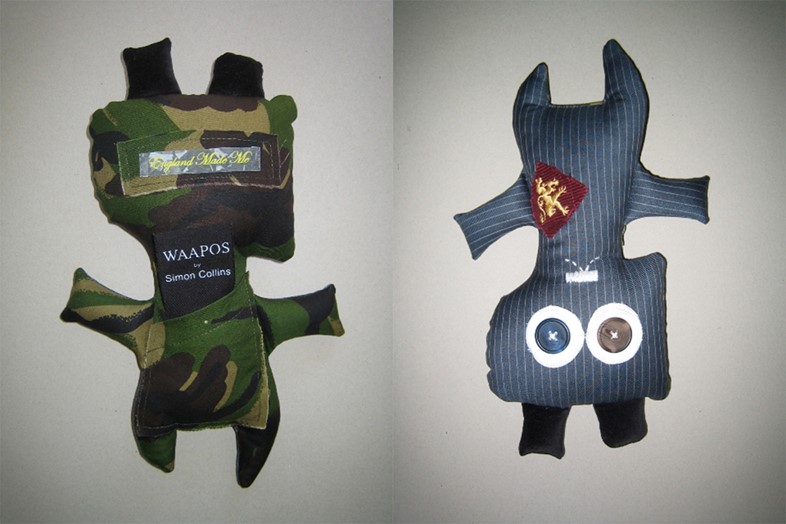
The word "intellectual" was coined in a time of great political distress. Does fashion have a political role? And in what way?
Fashion is communication and so certainly it does. When you look at punk, it was one of the most obvious political statements made using fashion. The visual element of clothing is part of your political statement whether you like it or not. Think of Palin’s wardrobe during the 2008 election campaign. I actually don’t think that fashion is the right word though; “dress” is much more appropriate. The Mao suit was an incredibly strong political statement, hardly fashion but mandated dress.
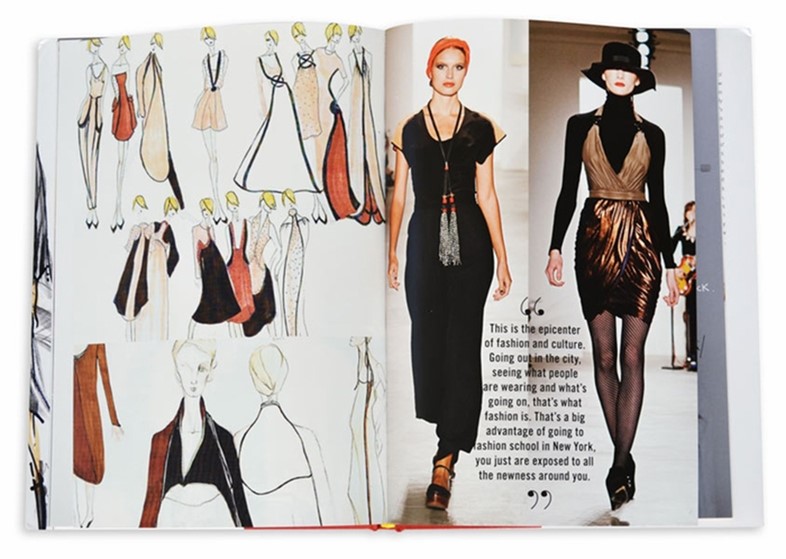
How would you relate the concept of fashion to the one of style?
Both are so completely subjective; a car can be in fashion, and not be stylish. Small cars are fashionable, but they can be as ugly as sin. Fashion in many ways just means popular, and popular does not mean stylish. I’ve been in fashion my whole life and I’ve observed people are often not very stylish if they’re too fashionable. I have a seven-year old daughter who thinks she looks very fashionable. She may be but she’s definitely not always stylish. And then there are people who are effortlessly stylish, no matter what fashion is going on. We can say that people are stylish, but often it has to do with who they are and where they come from, and that’s way beyond fashion.
"As an intellectual, you can study anything you want. It’s the way you approach it that makes it intellectual" — Simon Collins
What does fashion have to do with intellectuality?
It’s a very charged question as well. Parsons is half of the New School liberal arts university, and there are people here who don’t think that fashion is an intellectual field of study. However, there are fashion intellectuals on our faculty. As an intellectual, you can study anything you want. You can study couches, buildings, jackets. You can do an intellectual study of toothbrushes. It’s the way you approach it that makes it intellectual, not the topic.
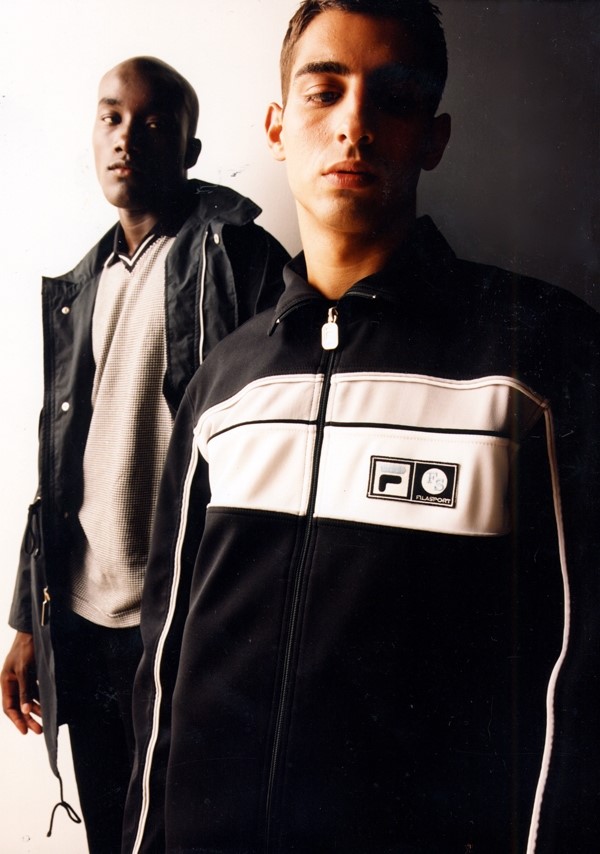
The world of fashion has changed considerably in the context of global culture – a subject you’ve worked enormously with. What is the impact of global culture on fashion?
It has had many forms of impact, good and bad. The corporate homogenisation is pretty bad: there are companies that think they can create a product for the whole world, that they’ll make more money, be more profitable, and they see it as success. But equally a new independent designer can go online and can sell his or her collection anywhere in the world. You don’t have to worry anymore about the previous gate-keepers like the big stores and the big magazines: suddenly, you can have a concept, use your iPhone to film a commercial, create a website for free, and sell your product anywhere in the world. You don’t need the same people’s approval anymore. It’s opened up this opportunity. So you have the big, dumb behemoth companies that want to sell the same crap around the world. And you also have the agile radical companies thinking innovatively; they get to sell their work globally in a way that would have been unconceivable a decade ago.
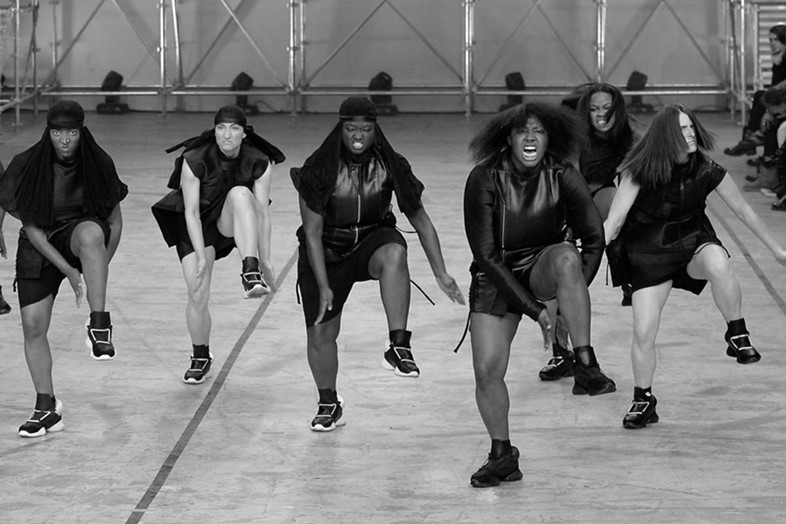
You serve as Dean of the School of Fashion at Parsons. Do you think that fashion can be taught?
Fashion is a catch-all word. Anything you can do in terms of a career you can do within fashion: you can be a fashion lawyer, a fashion architect, a fashion buyer, a fashion writer, a fashion this, a fashion that. You can come to Parsons and learn how to drape, how to apply all different techniques. But can we teach you how to be a good designer? Certainly not. We can teach you the techniques that will help you to be a good designer, but that’s it. It’s like the social media: it’s a tool. Garbage in, garbage out. I can teach you how to sew. But will you be able to make something nice once you know how to sew? That’s up to you.
In two weeks Donatien will interview Olivier Saillard, Director of the Musée de la Mode de la Ville de Paris.
